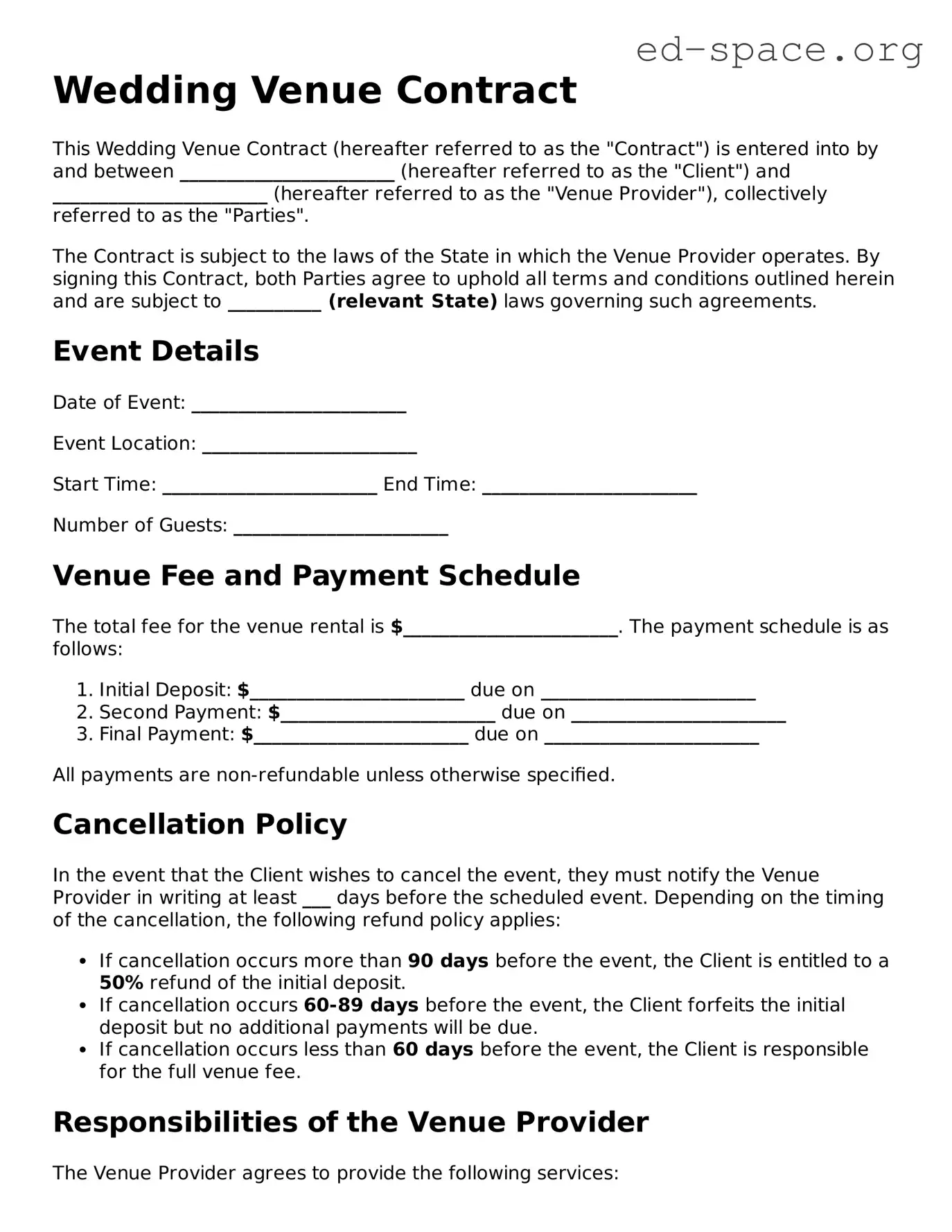What is a Wedding Venue Contract?
A Wedding Venue Contract is a formal agreement between the couple planning to get married and the owner of the location where the wedding will take place. This document outlines the terms and conditions related to the use of the venue, including payment schedules, cancellation policies, and any other obligations or rights of either party.
Why do I need a Wedding Venue Contract?
Having a Wedding Venue Contract is crucial as it ensures both parties understand their responsibilities, reduces the risk of misunderstandings, and provides legal protection should any disputes arise. It covers all vital details, such as dates, times, and specific expectations, to ensure the wedding day proceeds smoothly.
What should be included in a Wedding Venue Contract?
A comprehensive Wedding Venue Contract typically includes the names of the parties involved, detailed description of the services provided, payment plan, deposit requirement, cancellation and refund policy, liability clauses, and any restrictions or rules of the venue. It might also detail contingency plans for unforeseen events such as inclement weather.
How can I customize my Wedding Venue Contract?
Customizing your Wedding Venue Contract involves ensuring the agreement specifically addresses the details of your event. This includes adjusting the text to match the particular services offered by the venue, the event date and time, specific decorations or setups allowed, and any unique elements of your wedding. It's often helpful to consult with legal counsel to ensure the contract meets all your needs.
What happens if the wedding is canceled?
The steps to be taken in the event of cancellation should be clearly outlined in your Wedding Venue Contract. Typically, this will involve a cancellation fee, which may vary depending on how far in advance the wedding is canceled. The contract should specify any conditions under which a deposit may be partially or fully refundable.
Is a deposit always required for a Wedding Venue Contract?
While not always required, it is very common for wedding venues to request a deposit upon signing the contract. This deposit secures your reservation and may be applied to the total cost of the venue services. The exact amount and conditions for the return of the deposit should be clearly stated in the contract.
Can I negotiate the terms of the Wedding Venue Contract?
Yes, it's possible and often encouraged to negotiate the terms of the Wedding Venue Contract. This can include negotiating the price, payment schedule, cancellation policies, and any specific services or provisions. It's important to communicate openly with the venue provider to ensure the contract aligns with your needs and expectations.
What if the venue breaches the contract?
If the venue fails to meet its obligations as outlined in the Wedding Venue Contract, they could be considered in breach of the contract. Depending on the specifics of the agreement, you may be entitled to certain remedies, such as a refund of your deposit or compensation for any additional costs incurred. It's important to review the contract’s provisions regarding breach of contract and remedies.
Who should sign the Wedding Venue Contract?
The Wedding Venue Contract should be signed by the couple getting married or their legal representatives and the owner or authorized representative of the venue. This ensures that all parties agree to the terms and are legally bound by the agreement. It's also wise to keep copies of the signed contract for your records.
